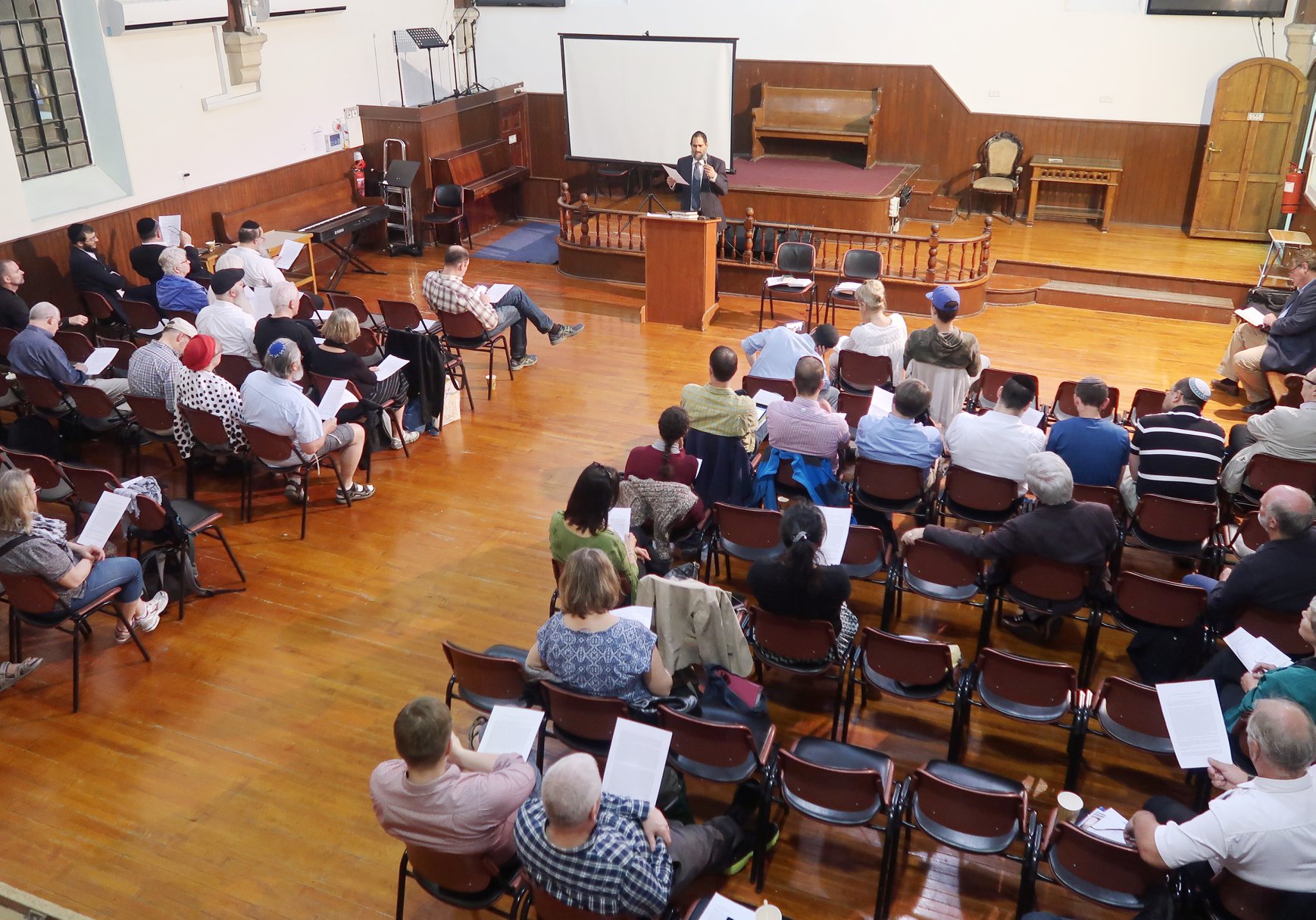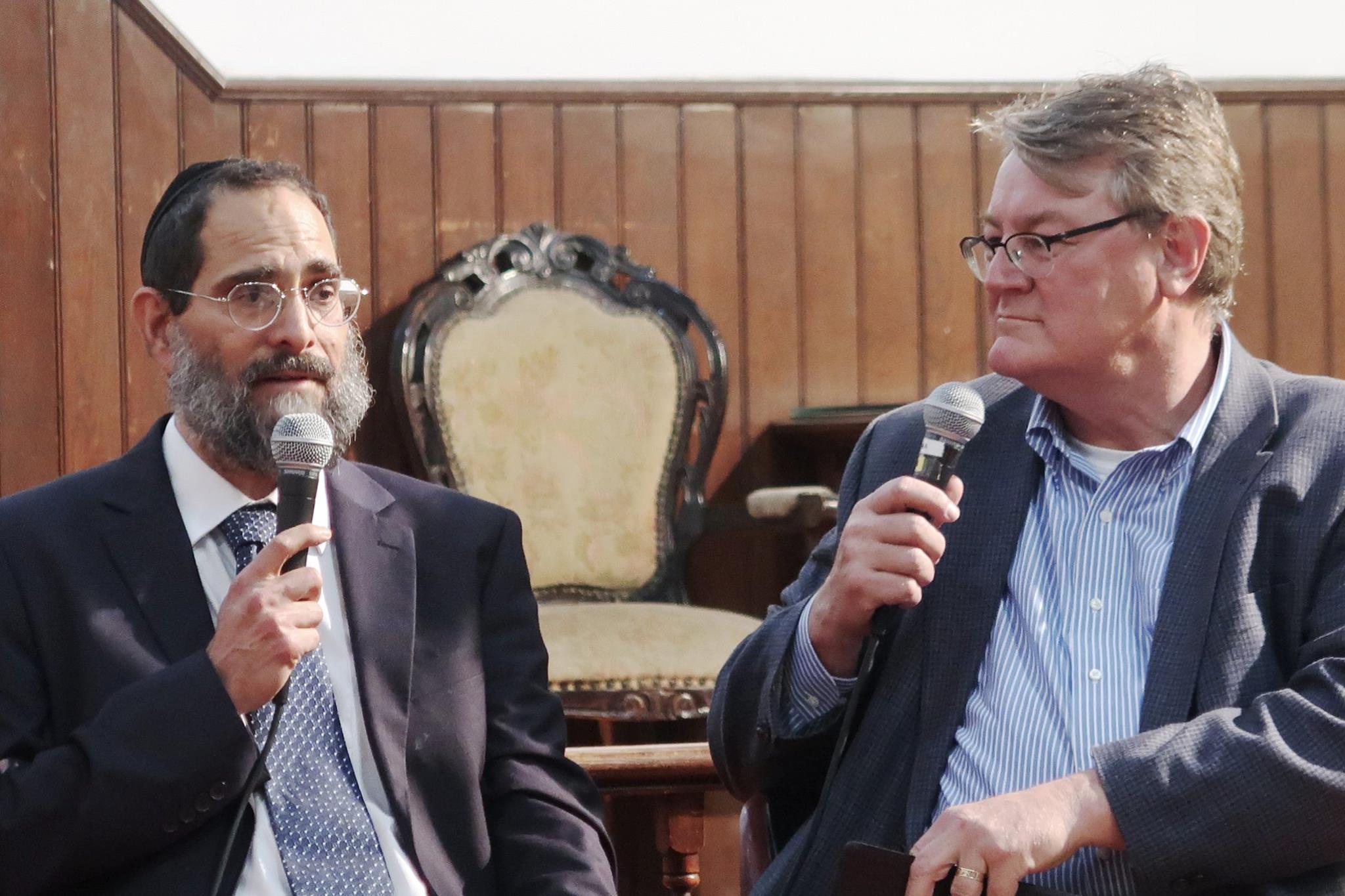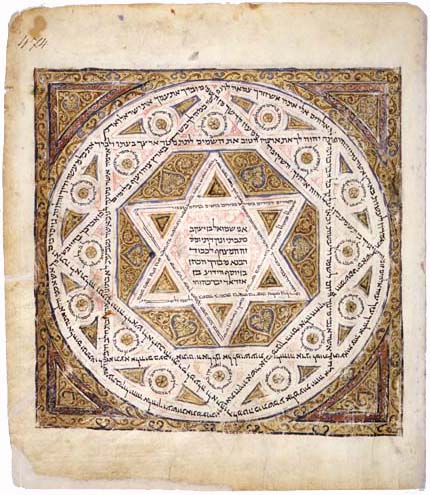Terho Kanervikkoaho & Sanna Erelä, Project Coordinators
Encounter Between a Pastor and a Rabbi
This past spring, we had two very interesting happenings in our International Teaching Ministry, here at the Caspari Center. In April, we hosted a friendly debate between Pastor David R. Parsons from the International Christian Embassy Jerusalem (ICEJ) and Ultra-Orthodox Rabbi Emanuel Gentilcore. The theme of their stimulating discussion was From Disputation to Understanding – the Role of Messiah.

The attending audience was unusually colorful; among the listeners were representatives from the Caspari Center’s International Partners and board members, as well as many religious Jews, acquaintances of Rabbi Gentilcore’s, who were there to hear him speak. Many controversial issues were discussed, in a very respectful manner.
Pastor David R. Parsons began by explaining why Christians and Messianic Jews believe that Jesus is the messiah. He presented several parallels between Jesus and Moses. Both were rejected by their own people – a fact that has unfortunately been used to mistreat the Jewish people throughout history. Moses was a deliverer, and so was Jesus. They were both prepared in the wilderness for their ministry. Moses was a type of messiah in many respects, but Jesus was the only one who provided an atonement through his sacrificial death.
Rabbi Emanuel Gentilcore reminded the audience about the painful historical fact that during the Middle Ages, Jews were forced into debates with Christian scholars by the Church. He acknowledged that for this reason, this type of event might be tainted by an unpleasant association for some people. There was also another challenge: the New Testament is regarded as heretical by Jews. Studying it may lead one to lose his place in the world to come. However, for teaching purposes, it is acceptable for a rabbi such as Gentilcore to read it and enter into conversation about it.
As one might expect, the question of biblical interpretation resulted in a difference of opinions. According to rabbinical tradition, the Torah has 70 faces, or ways of approaching and understanding the text. Gentilcore claimed that the Oral Law is needed to find the different meanings in the written text. David R. Parsons responded by saying that the Torah states that it is simple and comprehensible for ordinary men; but that, at the same time, some things are hidden from even the wisest. These things are revealed only through Jesus.
In the rabbinical tradition, however, the written Law provides the principles, which need to be elucidated to each new generation. In the Oral Law, the basic principle is as follows: later authors mustn’t contradict earlier great authors. According to Gentilcore, many Christians don’t realize that Jesus agreed with the teaching authority of the Pharisees, i.e. the oral tradition (Matt. 23:2-3). Christians and Messianic Jews mostly ignore this and approach the Hebrew scripture through one lens: Jesus.

Rabbi Gentilcore said that in Jewish tradition, there are two concepts regarding the coming messiah: the humble servant, Ben Yosef, and messiah the king, Ben David. They can’t be both true at the same time. The messiah will come in one of these forms; the manner in which he arrives – whether humbly or gloriously – will depend on how the Jews serve him, as a people. The rabbi continued to surprise his Christian audience by claiming that if all the Jews follow God’s commandments, they will receive a king. However, if the nation is secular and continues to sin, the humble Messiah will come.
The presentations and ensuing discussion were received very positively. Many important questions and completely opposing views were handled with great respect and honesty.
How Did the Bible Come to Us?
We wanted to look into how the bible came to us, and to invite others to delve into this with us. God’s word wasn’t dropped from heaven as a complete book; rather, it was the result of a very time-consuming and complex process. We began examining this process of assembling the biblical books by looking into the history of the Hebrew Scriptures (the Old Testament). We invited scholar Susan L. Schmidt to lecture on the development of the written Hebrew language, which was the first part of the seminar. After lunch, Susan also shared her journey of research into one of the most significant manuscripts, the Leningrad Codex.
We will continue this investigation into the how the bible came to us in the autumn, on September 13, with the second part: the Greek scriptures (the Septuagint and the New Testament). Michael Langlois from the University of Strasbourg will lead us in this study. Don’t miss it!

Leningrad Codex Carpet, courtesy of Wikimedia Commons
Both of these seminars were recorded and can be listened to at www.caspari.com.